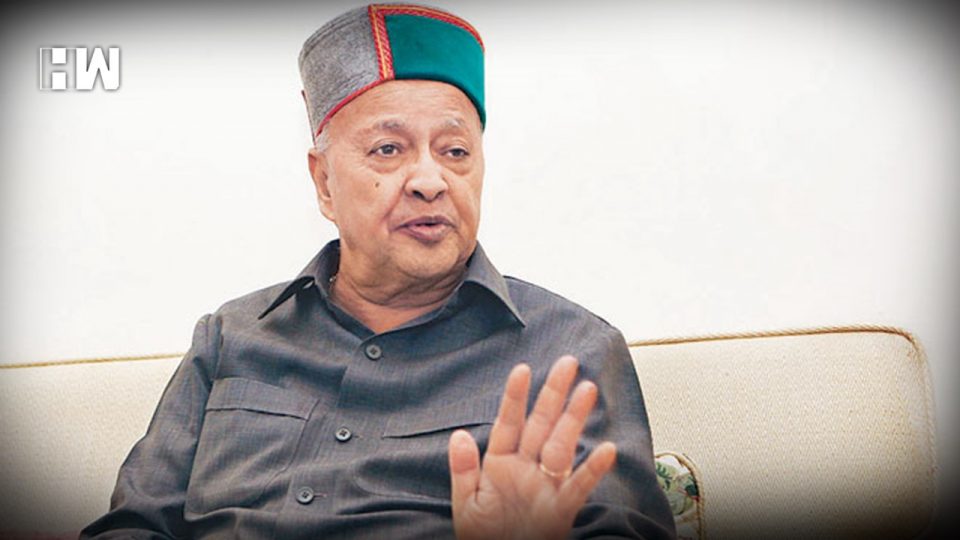New Delhi | Amid high drama, a second Delhi High Court judge has recused within a week from a disproportionate assets case against former chief minister Virbhadra Singh and his wife, expressing displeasure at the couple’s lawyer for “throwing” around names when he insisted the matter be heard later in the day as their senior counsel was busy.
Justice Najmi Waziri on Wednesday pulled up Singh’s counsel who insisted on a passover while making persistent reference to senior advocate Abhishek Manu Singhvi, saying he was to appear in the matter but was in another court.
Singhvi is a senior Congress leader and party spokesperson.
Virbhadra Singh, a Congress veteran and former Himachal Pradesh CM, and his wife Pratibha Singh have challenged a trial court order to frame charges against them in a case of allegedly having assets disproportionate to their known sources of income.
The matter came up before Justice Waziri on Wednesday for the first time after Justice Mukta Gupta had recused from hearing the matter on January 24 without specifying any reason.
As the hearing commenced, Singh’s lawyer sought a passover saying that Singhvi is to appear in the matter but he is busy in another court, to which Justice Waziri said there was no urgency in the matter as personal liberty of the petitioners had not been affected and that it can be heard on another date.
But Singh’s lawyer insisted on a passover, drawing the ire of the judge.
“Do not throw names at me. Why should I hear it today? What is so special about it? It is not a matter about personal liberty,” Justice Waziri said.
“Counsel should know what to say and what not to say. I will not hear the matter. List before another bench,” the judge said.
Senior advocate Dayan Krishnan then appeared on behalf of Singh and apologised saying he was stuck in another matter and could not reach in time.
To this, Justice Waziri said that the other lawyer had not said that Krishnan was to appear in the matter and had taken the name of another senior advocate (Singhvi).
Thereafter, Krishnan did not say anything more and the court listed the matter before another bench on February 6.
82-year-old Virbhadra Singh and his wife had approached the high court on January 23 against a December 10, 2018 trial court order to frame charges against him, his wife and seven others in the case lodged by the CBI.
Singh has claimed in the plea that the offence of possessing disproportionate assets under the Prevention of Corruption Act, if any, is said to have been committed in Himachal Pradesh and the consent of the state government is necessary to initiate an investigation.
The plea has contended that the trial court was only required to look into the effect of the investigation conducted without consent and not to look into the law as to whether consent was necessary.
It has said the special judge has wrongly held that sanction for prosecution under Section 197 of the CrPC was not required to be taken as the charges are framed under the IPC and Singh was serving as the chief minister of Himachal Pradesh at the time of taking cognisance of the charge sheet.
The trial court, in its December, 2018 order, had said that Singh intended to cause loss to tax authorities by presenting unaccounted money as sale proceeds of apples and had also ordered framing of charges against his wife and seven others for allegedly abetting in the offences.
The other seven accused in the case are LIC agent Anand Chauhan, Chunni Lal Chauhan, Joginder Singh Ghalta, Prem Raj, Vakamulla Chandrasekhar, Lawan Kumar Roach and Ram Prakash Bhatia.
The trial court in its 105-page order had said that Virbhadra Singh and Anand Chauhan “fraudulently and dishonestly” signed a memorandum of understanding (MoU) by ante-dating it to give an impression that it was signed on June 15, 2008 by them.
It had added that since the document was made for showing unaccounted money as sale proceeds of apples, they were liable to be charged for the offence of forgery.
The punishment for the offences of criminal misconduct and disproportionate assets under the PC Act ranges between one to seven years jail term, forgery under IPC entails a maximum of two years imprisonment and the offence of cheating could lead to a maximum sentence of seven years.
On the role of his wife, the court had said there was “grave suspicion” that she committed the offence of abetment under the IPC.
The CBI had registered the case against Singh and others for allegedly amassing assets worth around Rs 10 crore disproportionate to their known source of income when he was the Union minister in the UPA government.
A charge sheet running into over 500 pages, filed in the trial court, claimed that Singh had amassed assets worth around Rs 10 crore which were disproportionate by 192 per cent of his total income during his tenure as a Union Minister.
The final report, filed against nine people for alleged offences punishable under section 109 (abetment) and 465 (punishment for forgery) of IPC and Prevention of Corruption Act, arrayed around 225 witnesses and 442 documents.
The matter was transferred by the Supreme Court from the Himachal Pradesh High Court to the Delhi High Court, which on April 6, 2016 had asked the CBI not to arrest Singh and had directed him to join the probe.
As an independent media platform, we do not take advertisements from governments and corporate houses. It is you, our readers, who have supported us on our journey to do honest and unbiased journalism. Please contribute, so that we can continue to do the same in future.

